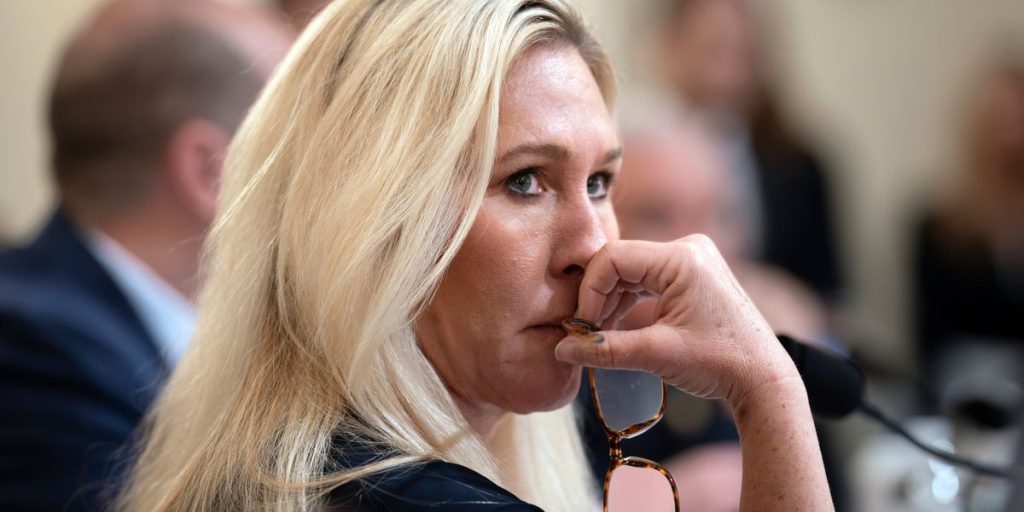Georgia congresswoman Marjorie Taylor Greene made waves on social media by suggesting that the recent earthquake in New York and the pending eclipse were messages from God to repent. In a post on X, she stated that America was receiving strong signs to repent and that more natural phenomena were to come. While God was unavailable for comment, social media users offered their own interpretations of Greene’s remarks. Some pointed out how close the earthquake came to former President Donald Trump’s golf club, while others, like Greene’s former colleague Adam Kinzinger, explained that eclipses are common occurrences and not signs from a higher power.
Many social media users criticized Greene’s statement, with some offering sarcastic explanations about the science behind eclipses and earthquakes. Some criticized her for bringing religious beliefs into natural disasters, noting that earthquakes are caused by the shifting of tectonic plates, not divine intervention. Others suggested that if God was sending a message, it might be for Greene to focus on her job as a congresswoman rather than making controversial statements on social media. Some users expressed disbelief at Greene’s comments, with one person questioning if society had regressed to the Dark Ages.
Despite the backlash, Greene’s remarks resonated with some of her supporters, who viewed the natural events as signs from a higher power. The congresswoman’s tendency to align her political views with her religious beliefs has sparked controversy in the past, with critics calling out her inflammatory statements and conspiracy theories. While Greene’s comments may have divided public opinion, they have once again brought attention to the intersection of religion and politics in the United States. As a prominent figure in the Republican Party, Greene’s controversial statements continue to attract both support and criticism from the public and her fellow politicians.
The debate over the role of religion in politics is not a new one, with many Americans holding strong opinions on the separation of church and state. While some believe that religious beliefs should influence political decision-making, others argue that lawmakers should prioritize secular principles when crafting policy. Greene’s recent comments on natural disasters and divine intervention have reignited this debate, prompting discussions about the appropriate boundaries between religion and government. As the United States grapples with complex social and political issues, the intersection of religion and politics remains a controversial and divisive topic for many Americans.


